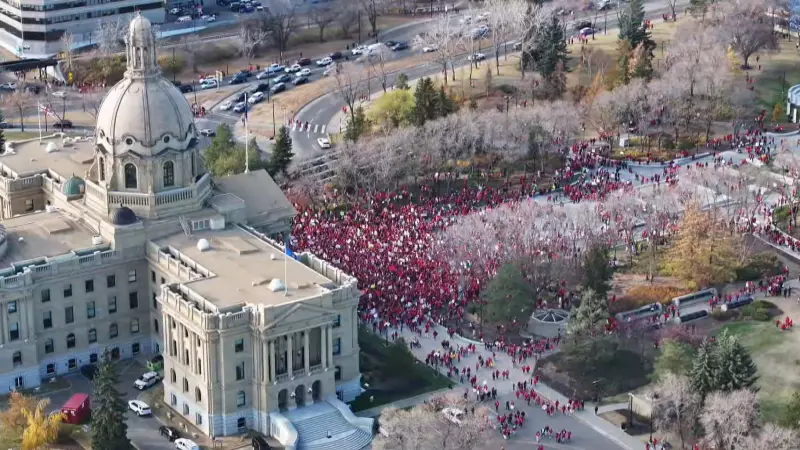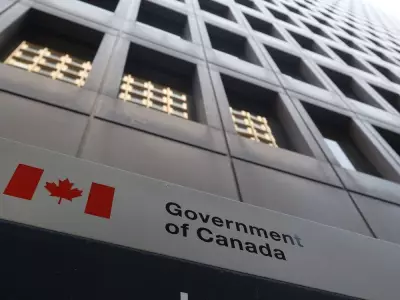
Alberta's current political leadership has invoked the ghost of one of the province's most respected premiers in the ongoing debate surrounding the use of the constitutional notwithstanding clause. Premier Smith has publicly stated that her Progressive Conservative predecessor, the late Peter Lougheed, would have employed the controversial legislative tool under similar circumstances.
The Political Context
This statement comes amid significant labor unrest within Alberta's education sector. On October 23, 2025, striking teachers and their supporters rallied outside the legislature in Edmonton during the throne speech, highlighting the tense atmosphere in provincial education negotiations. The government's position appears to be hardening as it faces pressure to resolve the dispute.
Premier Smith's comments represent a strategic political maneuver, attempting to legitimize potential use of the notwithstanding clause by linking it to Lougheed's legacy. Peter Lougheed, who served as Alberta's premier from 1971 to 1985, remains a revered figure in provincial politics, known for his defense of Alberta's interests during constitutional battles with the federal government.
Constitutional Implications
The notwithstanding clause, formally known as Section 33 of the Canadian Charter of Rights and Freedoms, allows Parliament or provincial legislatures to override certain Charter rights for five-year periods. Its use has always been controversial, with critics arguing it undermines fundamental rights and freedoms.
By suggesting that Lougheed would have deployed this constitutional mechanism, the current government seeks to frame its potential use as consistent with Alberta's political tradition rather than a radical departure. This historical justification comes as the province faces complex legal and political challenges across multiple sectors.
The debate occurs against a backdrop of other significant provincial issues, including ongoing discussions about COVID-19 vaccine policies and broader healthcare concerns. CUPE Alberta has launched an online campaign opposing the province's proposed COVID-19 vaccine fee, indicating the multifaceted nature of current provincial challenges.
Broader Political Landscape
This development in Alberta politics mirrors constitutional discussions occurring at the federal level and in other provinces. The strategic invocation of historical figures to justify contemporary policy decisions represents an evolving trend in Canadian political discourse.
As the teacher negotiations continue and the government contemplates its options, the reference to Lougheed's potential approach adds a significant historical dimension to the current standoff. How this rhetorical strategy will influence public opinion and the eventual resolution of the education dispute remains uncertain.





